
Our activities cover screening, diagnosis, assessment, treatment and follow up in regard to these tumours. Our speciality is the intersection of gastroenterology, medical oncology (treatment of cancers by systemic route and drug administration) and digestive surgery, departments with which we cooperate closely.
How we treat cancers of the colon or rectum
Colorectal cancers are among the most common forms of cancer. Significant advances have been made in improving the way they are treated. Treatment requires a multidisciplinary approach.
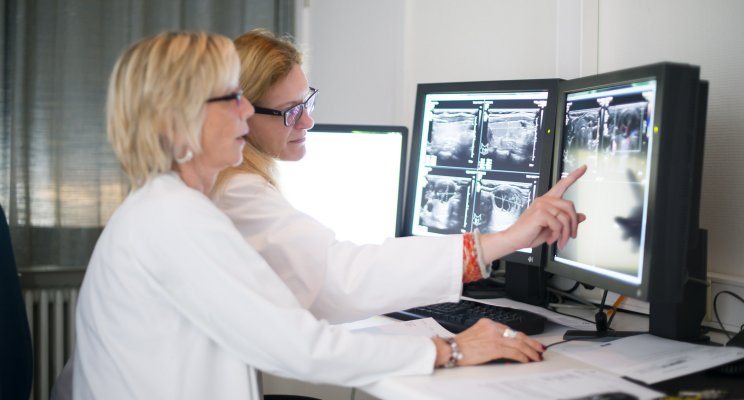
To confirm and refine diagnosis, the patient undergoes various examinations:
- a colonoscopy during which one or more samples (biopsies) of the mucous membrane of the digestive tract are taken. The tissue “sample” is then sent to the laboratory for analysis;
- medical imaging examinations (radiography, CT scan or MRI) are carried out to discover the extent of the tumour and identify any possible metastases;
- for rectal cancers, an endoscopy and an MRI of the pelvis are also carried out to establish if the neighbouring organs (bladder, ovaries, prostate, etc) have been affected by cancer.
The therapeutic strategy depends on the type of cancer, its stage and extent. In a curative approach, colon cancers are first treated by surgery, then by chemotherapy. The aim of this chemotherapy, known as adjuvant (“post-operative”) chemotherapy, is to destroy any small clusters of cancer cells that it was not possible to remove by surgery. If these cell clusters are not destroyed, they can develop and become a recurrent tumour and/or metastases.
For rectal cancers, adjuvant chemotherapy and/or radiotherapy are also used to prevent recurrence.
In advanced stages of colorectal cancer, the therapeutic strategy also depends on combining these different treatments.
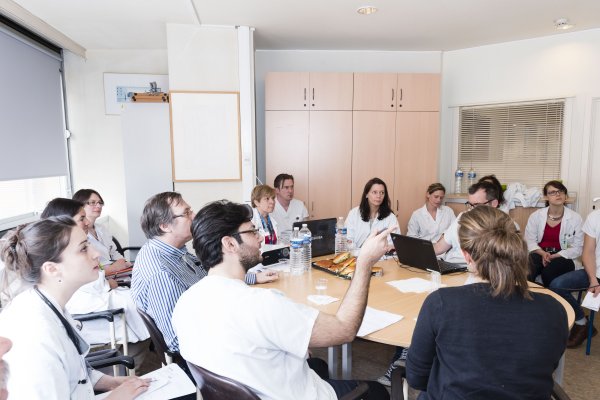
The management of colorectal cancer almost always involves a range of treatments. So it is multidisciplinary. At the Institut Bordet, the Digestive Tumour Multidisciplinary Cancer Care Team (CMO) meets every week to discuss each patient’s situation. The team includes gastroenterologists, surgeons, medical oncologists, pathologists, nuclear medicine specialists, radiotherapists, a cancer psychologist and a cancer care nurse coordinator (ICSO). If the colorectal cancer leads to metastases of the liver, the Digestive CMO team works in close collaboration with the Hepatic CMO team.
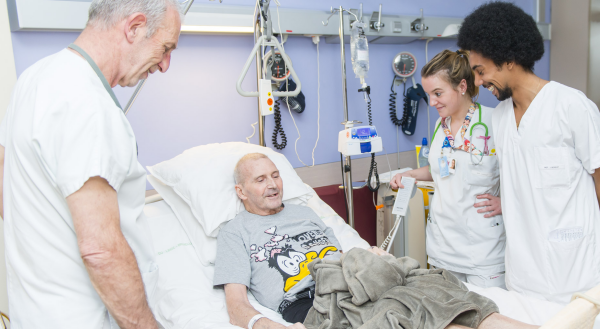
The Institut Jules Bordet's nurses, most of whom specialise in oncology, are committed to caring for patients with thought, humanity and professionalism.
Their role does not stop at care and treatment follow-up; they also meet families, and try to be as available as possible and by patients' sides while being attentive to everything confided in them.
The role of education, information and support is an integral part of their profession.
They must have relational, technical and scientific skills in line with the gravity and the complexity of the cancerous pathology.
The nurses are particularly attentive to the treatment of pain and other symptoms resulting from cancer treatment.
They also focus on their role as trainers to welcome and supervise students, and give them incentive to practice the profession in the best possible conditions.
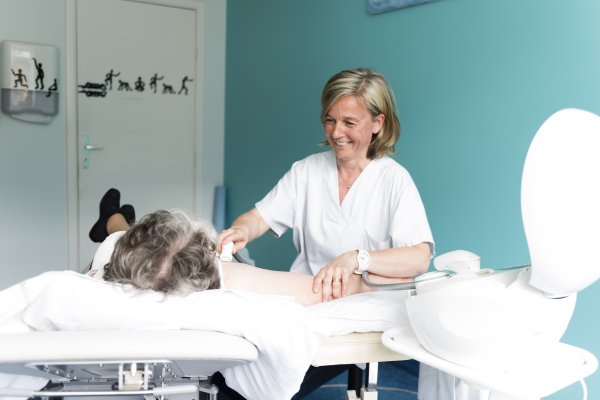
With the medical teams, many other healthcare professionals support the patients. They are dedicated to help patients in managing their illness and treatments, and to promote their wellbeing.
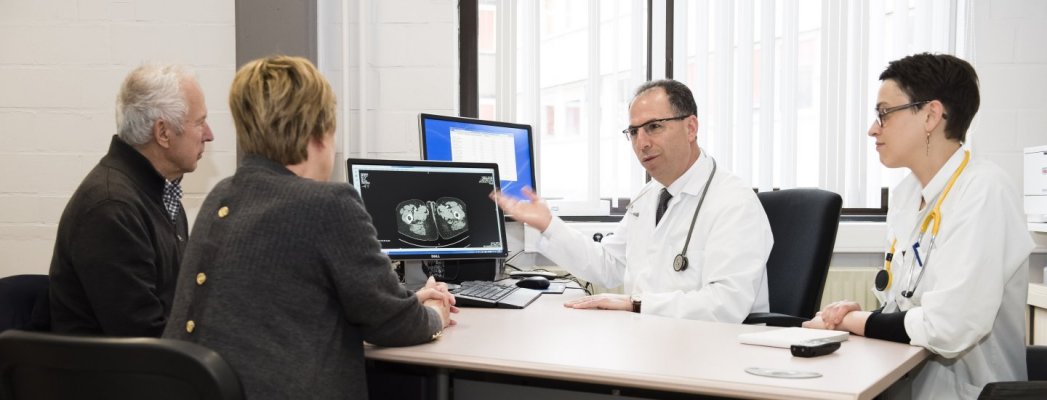
Every year many patients want to request a second medical opinion from our multidisciplinary teams.
Not all the doctors and hospitals will necessarily have the expertise, experience and/or equipment needed for an optimal approach to all types of cancer. At the Jules Bordet Institute this is our job! Requesting a second medical opinion is therefore often useful and reassuring for the patient. This is especially true in the case of rare cancers and/or cancers requiring complex or innovative treatment.
- To request a second opinion for a colorectal cancer: Tel: +32 (0)2 541 34 80
- To find out more about a second opinion, see our page "second opinion"
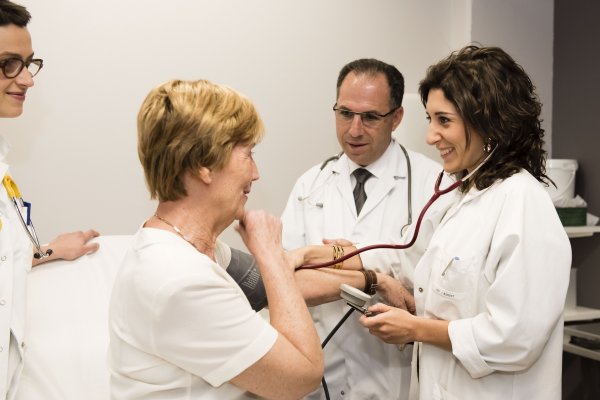
The aims of post-cancer care are multiple:
- to keep an eye on the physical and psychological state of the patient
- to manage any medium or long-term secondary effects of certain treatments
- to detect any recurrence as soon as possible
- to identify any new cancer.
Recurrence means that cancer cells reappear after a period of remission that can vary from a few months to several years. It can also happen that the same patient develops different cancers several years apart. In all these cases, the earlier a recurrence or cancerous disease is detected, the faster a new therapeutic strategy can be offered.